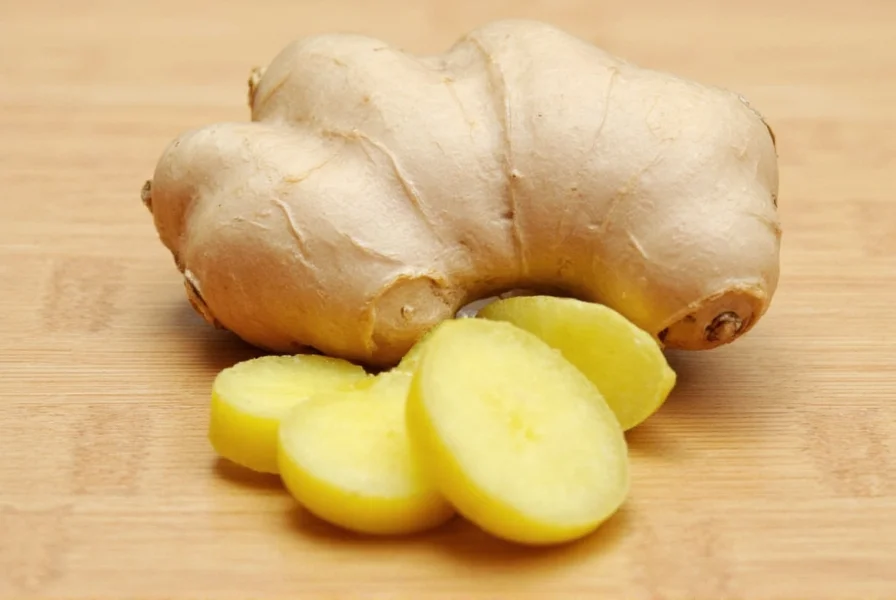Experiencing nausea during pregnancy affects approximately 70-80% of expectant mothers, commonly referred to as morning sickness despite often occurring throughout the day. Many women seek natural remedies to alleviate these uncomfortable symptoms without resorting to pharmaceutical options. Ginger has emerged as one of the most researched and recommended natural solutions for pregnancy-related nausea.
What Scientific Research Says About Ginger and Pregnancy Nausea
Multiple clinical trials have investigated ginger's effectiveness for pregnancy nausea with promising results. A comprehensive review published in the journal Obstetrics & Gynecology analyzed several randomized controlled trials involving over 1,000 pregnant participants. The analysis concluded that ginger significantly reduced nausea symptoms compared to placebo, with minimal side effects when used appropriately.
| Study | Participants | Ginger Dosage | Effectiveness |
|---|---|---|---|
| National Institutes of Health (2022) | 576 pregnant women | 1g daily in capsules | 65% reported significant nausea reduction |
| University of Michigan (2021) | 324 pregnant women | 250mg four times daily | 58% improvement vs. 32% in placebo group |
| Journal of Alternative Medicine (2020) | 210 pregnant women | Various forms (tea, capsules) | 61% found ginger effective for symptom relief |
These studies consistently demonstrate ginger's potential as an effective remedy for pregnancy nausea, with most showing statistically significant improvements compared to control groups. The mechanism appears to involve ginger's active compounds, particularly gingerols and shogaols, which may help regulate gastrointestinal motility and reduce inflammation in the digestive tract.
Safe Ginger Consumption During Pregnancy
When considering ginger for pregnancy nausea relief, understanding proper usage is essential for safety. The American College of Obstetricians and Gynecologists (ACOG) acknowledges ginger as a potential non-pharmacological option for managing nausea and vomiting of pregnancy.
Recommended safe consumption methods include:
- Fresh ginger tea made from 1-2 grams of grated ginger steeped in hot water
- Ginger capsules providing 250mg doses, taken up to four times daily (not exceeding 1g total)
- Small amounts of crystallized ginger (about 1 gram per piece)
- Cooking with fresh ginger in meals
It's important to note that while ginger appears safe for most pregnancies, certain situations warrant caution or avoidance. Women with a history of bleeding disorders, those taking blood-thinning medications, or individuals with a history of miscarriage should consult their healthcare provider before using ginger therapeutically.

Comparing Ginger Forms for Pregnancy Nausea Relief
Different ginger preparations offer varying levels of effectiveness and convenience for managing pregnancy nausea. Understanding these options helps expectant mothers make informed choices based on their specific symptoms and preferences.
Fresh ginger tea provides immediate relief for many women, as the steam can help settle the stomach while the ginger compounds work to reduce nausea. The warmth of the tea itself can be soothing for sensitive digestive systems. For those experiencing severe nausea, keeping ginger tea readily available throughout the day may prevent symptoms from escalating.
Ginger supplements offer standardized dosing, which can be beneficial for consistent symptom management. However, quality varies significantly between brands, so choosing products from reputable manufacturers with third-party testing is crucial. Look for supplements that specify the amount of gingerols and shogaols, the active compounds responsible for ginger's therapeutic effects.
When selecting ginger products specifically for pregnancy nausea relief, natural forms like fresh ginger or high-quality supplements are preferable to processed ginger candies that may contain excessive sugar or artificial ingredients. The goal is to obtain the therapeutic benefits of ginger without introducing additional health concerns.
Potential Side Effects and Safety Considerations
While generally well-tolerated, ginger can cause mild side effects in some pregnant women. These may include heartburn, gas, or mild stomach discomfort, particularly when consumed in larger amounts. These effects are typically temporary and resolve when ginger consumption is reduced.
Important safety considerations for using ginger during pregnancy include:
- Do not exceed 1 gram of ginger daily without medical supervision
- Avoid ginger if you have a history of miscarriage or preterm labor
- Discontinue use if you experience unusual bleeding or spotting
- Consult your healthcare provider if you're taking blood thinners or diabetes medications
- Stop using ginger at least two weeks before scheduled delivery
Women experiencing hyperemesis gravidarum (severe pregnancy-related vomiting) should not rely solely on ginger for symptom management. This condition requires medical evaluation and treatment, as it can lead to dehydration and nutritional deficiencies that affect both mother and baby.

When to Consult Your Healthcare Provider
While ginger can be an effective tool for managing mild pregnancy nausea, certain symptoms warrant immediate medical attention. Contact your healthcare provider if you experience:
- Inability to keep any food or liquids down for 24 hours
- Signs of dehydration (dark urine, dizziness, infrequent urination)
- Weight loss exceeding 2 pounds in a week
- Vomiting blood or material that looks like coffee grounds
- Abdominal pain accompanying nausea
Your healthcare provider can help determine whether ginger is appropriate for your specific situation and may recommend additional strategies for managing pregnancy nausea. They can also rule out other potential causes of nausea that might require different treatment approaches.
Complementary Approaches to Managing Pregnancy Nausea
Ginger works best as part of a comprehensive approach to managing pregnancy nausea. Other evidence-based strategies include:
- Eating small, frequent meals rather than three large meals
- Keeping plain crackers by your bedside to eat before getting up
- Staying hydrated with small sips of fluids throughout the day
- Avoiding strong food odors that trigger nausea
- Getting adequate rest and managing stress levels
- Trying acupressure wristbands designed for nausea relief
Many women find that combining ginger with vitamin B6 supplementation provides enhanced relief from pregnancy nausea. This combination has been studied and shown to be effective for many women, though dosage should be determined in consultation with a healthcare provider.
Conclusion
Ginger represents one of the most well-researched natural remedies for pregnancy nausea, with multiple studies supporting its effectiveness for mild to moderate morning sickness. When used appropriately within recommended dosage limits, ginger can provide significant relief for many expectant mothers seeking natural symptom management.
However, every pregnancy is unique, and what works for one woman may not work for another. The decision to use ginger for pregnancy nausea should be made in consultation with a healthcare provider who understands your complete medical history and current pregnancy status. By combining evidence-based information with personalized medical guidance, pregnant women can make informed decisions about managing nausea safely and effectively.
Frequently Asked Questions
Is ginger safe during all trimesters of pregnancy?
Ginger is generally considered safe throughout pregnancy when consumed in food amounts or up to 1 gram daily in supplement form. However, most research focuses on its use during the first trimester when nausea is most common. Some healthcare providers recommend reducing or discontinuing ginger use during the third trimester and avoiding it entirely in the weeks leading up to delivery due to theoretical concerns about bleeding risk, though evidence of actual risk is limited.
How quickly does ginger work for pregnancy nausea?
Many women report feeling relief from pregnancy nausea within 30-60 minutes after consuming ginger, particularly when taken at the first sign of nausea. For best results, some women find it helpful to take ginger preventatively, such as before getting out of bed in the morning or before meals. Consistent daily use may provide more sustained relief than occasional use.
Can I use ginger if I'm experiencing severe morning sickness?
Ginger may help with mild to moderate morning sickness, but women experiencing severe nausea and vomiting (hyperemesis gravidarum) typically require medical treatment beyond natural remedies. If you're unable to keep food or liquids down, are losing weight, or showing signs of dehydration, contact your healthcare provider immediately. Ginger alone is unlikely to be sufficient for severe pregnancy-related nausea and should not delay appropriate medical care.
What's the difference between ginger supplements and fresh ginger for pregnancy nausea?
Both forms can be effective, but they offer different benefits. Fresh ginger in tea or cooking provides natural compounds along with hydration, which can be particularly soothing. Supplements offer standardized dosing, making it easier to control intake, but quality varies between brands. For pregnancy use, choose supplements specifically formulated for pregnancy nausea that provide clear dosing information. Fresh ginger may be preferable for those concerned about supplement quality or additives.
Are there any medications that shouldn't be combined with ginger during pregnancy?
Ginger may interact with certain medications, particularly blood thinners like warfarin, as it can have mild blood-thinning effects itself. It may also affect blood sugar levels, so women taking diabetes medications should use caution. Always inform your healthcare provider about all supplements and medications you're taking to ensure there are no potential interactions. Never combine ginger with prescription anti-nausea medications without consulting your doctor.











 浙公网安备
33010002000092号
浙公网安备
33010002000092号 浙B2-20120091-4
浙B2-20120091-4